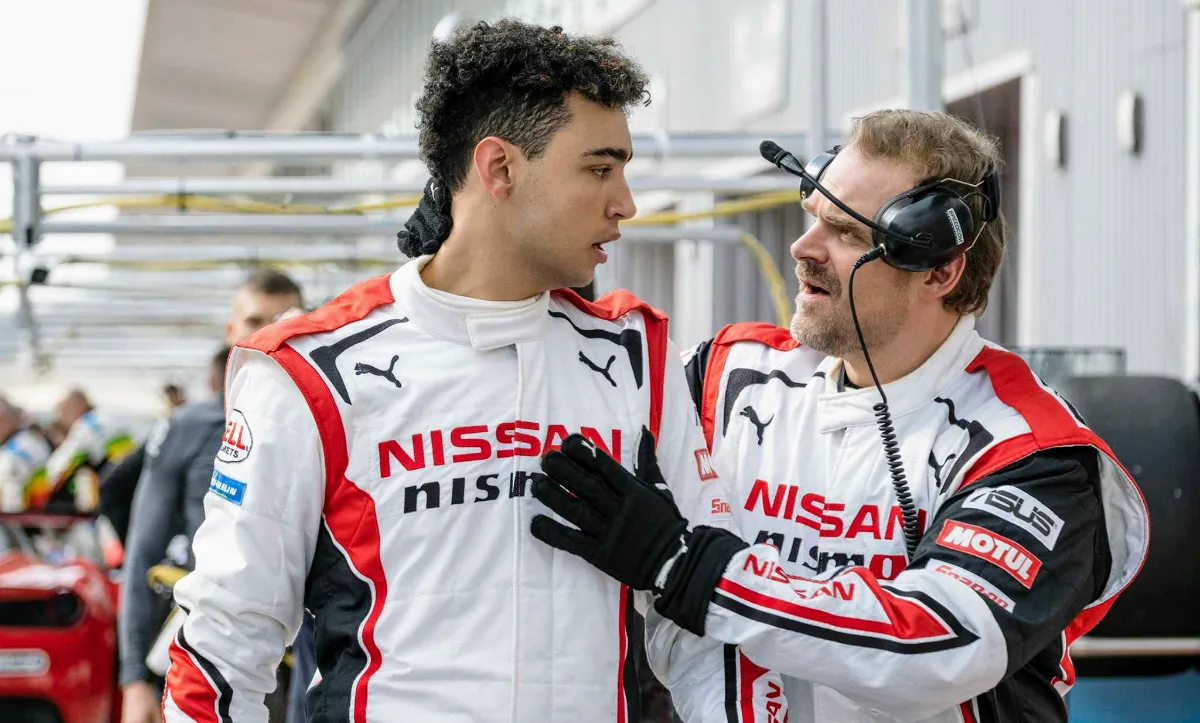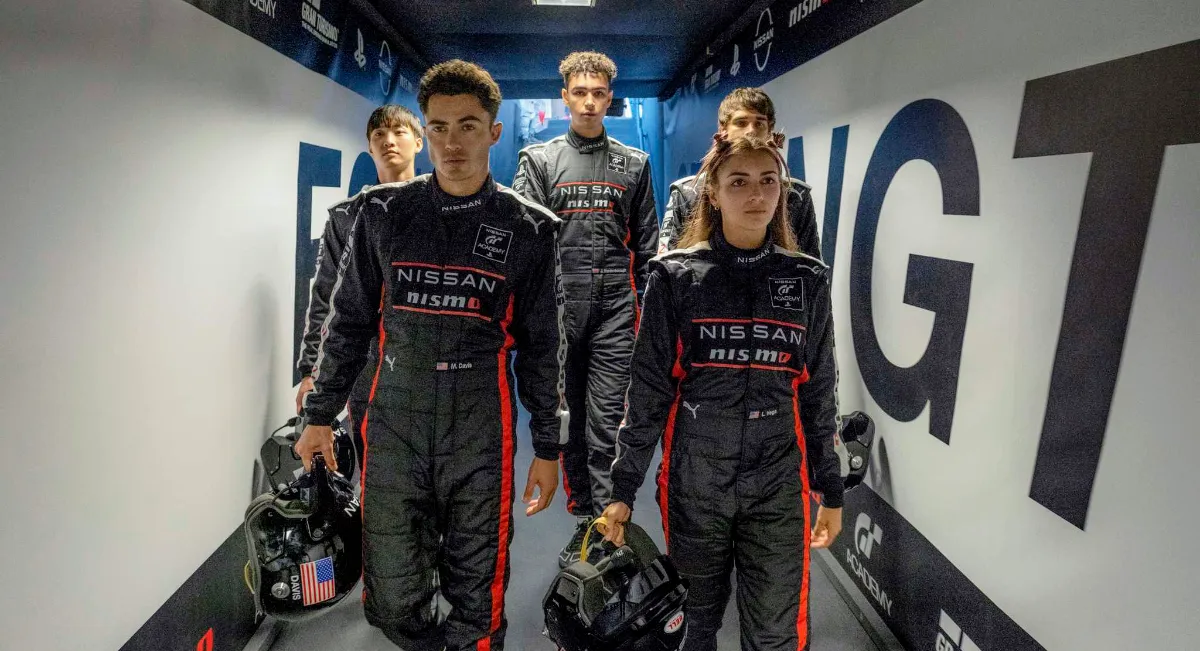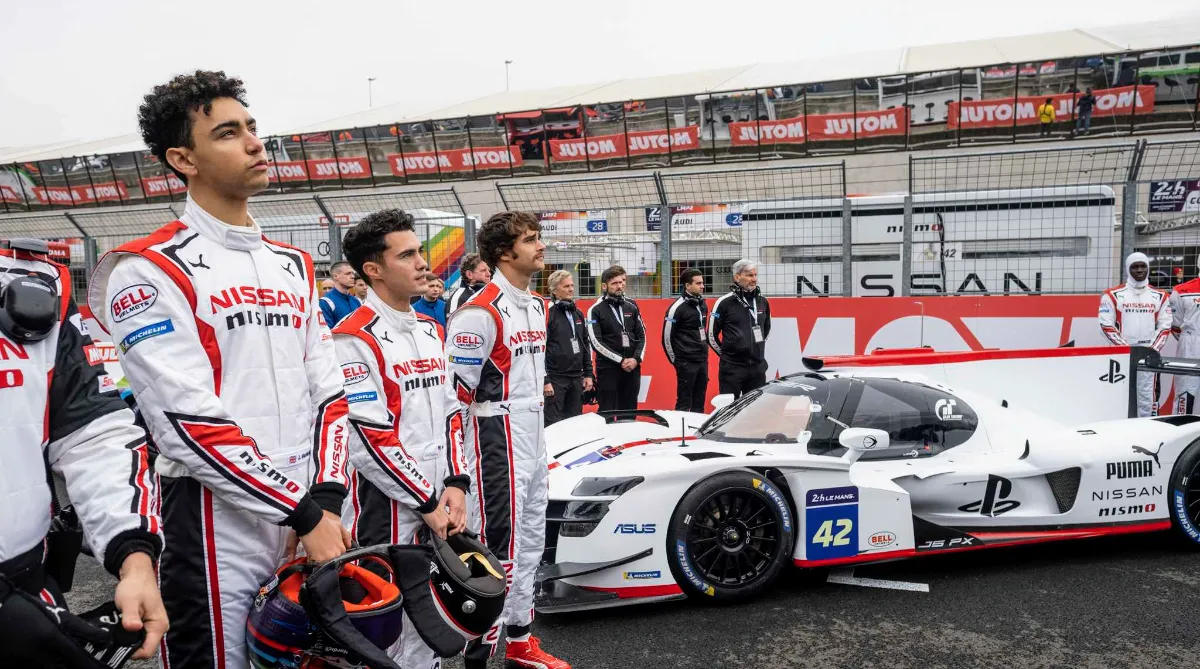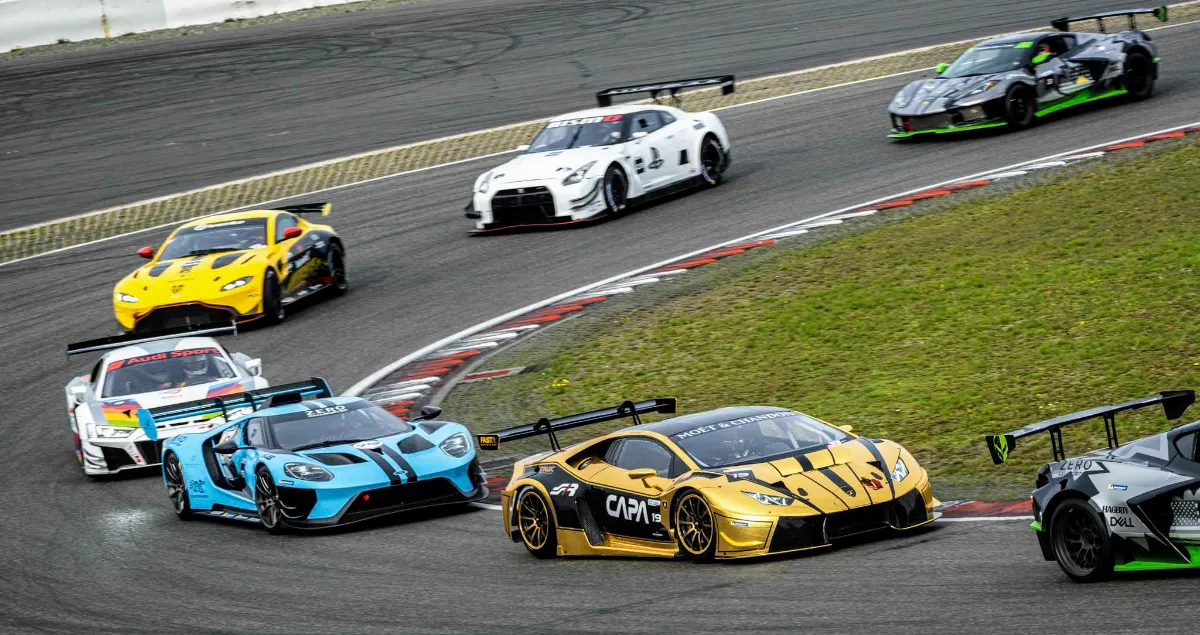
The funniest part of “Gran Turismo” is hearing Orlando Bloom, playing a Nissan executive, struggle with how to pronounce “Nissan.” Sometimes he says “NISS-in,” other times “NISS-anne,” never quite settling on the right way.
You’d expect, since the film is based on a true story, that he’d at least say it like the real person would. But surprise — that character isn’t even real. Neither is the motivational racing coach, portrayed by David Harbour (“Stranger Things”). Although “Gran Turismo” claims to tell the story of British racecar driver Jann Mardenborough, almost nothing in the movie is accurate, and what little truth there is gets twisted beyond recognition.

We usually accept fictional twists when movies portray very famous people. Take “The Darkest Hour,” for example—there’s a scene where Winston Churchill finds inspiration from chatting with strangers on the London subway. It never really happened, but it felt emotionally true. So what’s the point of inventing a completely fictional story about someone who isn’t widely known? Sure, Mardenborough is respected in racing circles, but he’s not exactly a household name. Why go to great lengths to tell his story only to add struggles and doubts he never experienced or challenges he didn’t actually face?
Here’s a thought: fiction is its own genre, just as valid as nonfiction. Just be honest about it, and we’ll accept the ride.
The one kernel of truth here is a fascinating one—Mardenborough honed his racing skills not behind a wheel, but by playing PlayStation’s “Gran Turismo,” a racing simulator. As a gamer, he entered a real Gran Turismo competition and earned a place at the Gran Turismo Academy, where he was trained to become a genuine professional racer.

“Gran Turismo” takes parts of Mardenborough’s life and squeezes them into a typical sports movie formula packed with clichés. To be fair, clichés exist because they resonate with audiences, but “Gran Turismo” stacks them up and then drags them through an overly long film.
The plot is familiar: Jann (Archie Madekwe) struggles to earn his father’s (Djimon Hounsou) approval, has a tough but caring coach, and faces a major crisis that nearly derails his career just as he’s about to succeed.
The most troubling part is how the film twists a real racing accident—where a spectator died—by changing the details and moving the event two years earlier, turning it into a manufactured obstacle on Mardenborough’s road to victory.
But perhaps none of this would be so problematic if “Gran Turismo” weren’t so dull. There’s zero suspense because it’s obvious Mardenborough won’t lose to his despised rival (a fictional character). The movie runs 135 minutes—feeling even longer—and includes at least one race too many.

There’s also a simple issue: Car races aren’t very cinematic. The drivers’ faces are mostly hidden, and with all the pit stops, it’s hard to keep track of who’s actually leading—especially since the cars all look so similar. Have you ever watched a car race on TV? For more than an hour? And would you willingly sit through 135 minutes of it?
“Gran Turismo” is basically just the same cars circling the track again and again.
